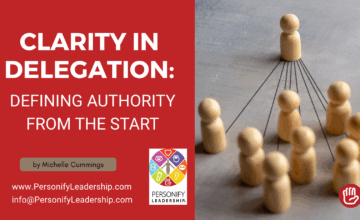Preparation: The Secret to Better Difficult Conversations
- Apr 29, 2025
- By personifyadmin
- In Newsletters
- 0 Comments
Tough conversations are part of leadership, but their outcome often depends on what happens before you sit down to talk. Walking into a sensitive discussion without preparation can lead to unclear messages, heightened emotions, and missed opportunities for resolution. Taking time to plan both what you want to say and how you want to say it can make all the difference.
Preparation starts with clarifying your purpose. Ask yourself, “What is the main point I need to communicate?” and “What outcome do I want from this conversation?” Having these answers in mind keeps you focused and prevents the discussion from drifting into unrelated issues.
It is equally important to think about the other person’s perspective. What might they be feeling? How might they react? Considering this in advance helps you choose a tone and approach that balance honesty with empathy. You want to be clear, but also respectful, so that the conversation moves toward solutions rather than defensiveness.
Practicing your key points can also help. This does not mean scripting the entire exchange, but rather deciding on the main messages you will convey and the words you will use to deliver them. Simple, direct language often works best.
Logistics matter too. Choosing the right time and setting can reduce tension and create an environment where both parties can focus. A quiet, private space signals that the conversation matters and deserves full attention.
When you prepare in this way, you are more likely to remain composed and confident, even if the conversation becomes emotional. You can listen more effectively, respond thoughtfully, and guide the discussion toward a constructive outcome.
Our Core Program helps leaders develop the skills and preparation habits needed to approach tough conversations with confidence, clarity, and respect.
~by Michelle Cummings, Founder & CEO, Personify Leadership
Tip/Tool for Implementation: Plan your words and your approach, preparation turns tough talks into productive ones.
Leaders who prepare for tough conversations clarify their message, anticipate reactions, and choose the right tone. This preparation increases confidence, reduces misunderstandings, and makes it more likely that difficult discussions lead to constructive results.
Supportive Research: “4 Things to Do Before a Tough Conversation” — Harvard Business Review (by Joseph Grenny, 2019)






Recent Comments